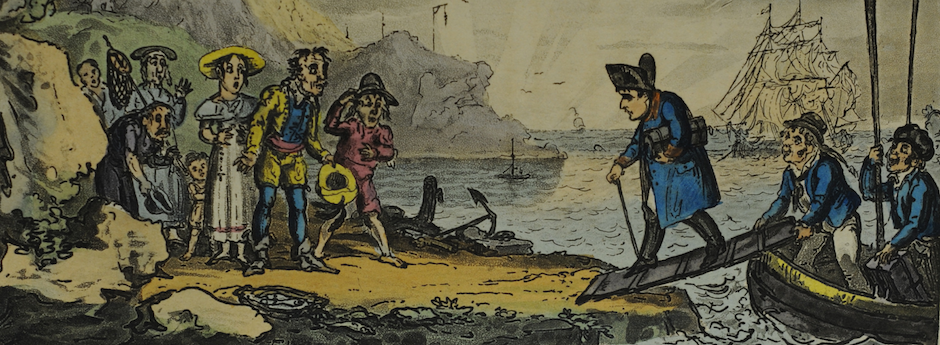Nothing humorous happening here. If it’s laughs you want, see you in the funny papers.
I have come today to take on that egregious term “starter marriage.” I hate that phrase. It’s cute, no…cutesy. Even worse.
And it’s used casually and callously to describe a holocaust of the heart – a young marriage- presumably without kids- that has collapsed within the first year or so of the wedding march.
There’s nothing cutesy about it. I ought to know. I had one.
There is an inherent danger in taking one’s own experience and extrapolating a larger truth from it. Just because it happened to you doesn’t make it that same way for everybody else.
But I’m willing to take that chance so that I can be the spokesmodel for the pain and disappointment, the failure, the secret shame that lurks behind those two little words.
“S.M.” The initials are kind of ironic, aren’t they?
Ignoramuses think “no kids, no harm, no foul” and snicker when they hear about a soon-failed marriage and the quick divorce that follows. No one discusses it. No one mourns it. Or is allowed to.
People think no real damage was done. They might be out a shower gift or a wedding present, but what’s the big deal? And wasn’t it better for all parties concerned if the two flighty people involved broke up before any permanent mistake was made- like a baby, for example.
Nobody really got hurt now, did they?
I’m still uneasy with the memories. And so is my family. And so are all the other families out there that this awful thing has happened to.
Believe me. Anyone who has ever had the misfortune of witnessing a young marriage fail can never been flippant about it.
It leaves you with a blot on your marital record and a stain on your moral one. It forever alters the way you feel about love, marriage, vows, the world, and ultimately yourself.
And let’s not even talk about the money down the drain that your parents just shelled out to give you that dream wedding if you’re the girl half of the couple.
You’re now officially a failure at twenty-six. Or in my case, twenty.
And it wasn’t any better for the other party most closely concerned either.
I was fourteen and he was fifteen when we met.
Before he had a driver’s license, he used to run from his house in Glencoe to my house in Wilmette. My mother had to drive us on our official first date.
We went to high school together and then, college. We got pinned, engaged, and then almost a year later, married in a big, gorgeous, black tie ceremony.
I carried miniature calla lilies and walked down the aisle on my proud father’s arm to Purcell’s “Trumpet Voluntary.” My new husband and I walked back to the triumphant strains of Mendelssohn’s “Wedding March.”
With all the hopes and dreams and plans and emotions that you- and your mother and father- had when you got married. Tact precludes me from saying much more.
But for the record, two young lives were changed by the implosion of our short-lived marriage. The events that led up to it were ugly and sad. And not only my hopes and dreams were shattered.
But you have to move on.
I’m sure most people recover, remarry, and live happily ever after. They never refer to their early “mistake.” They have children with others. It’s better left forgotten. It happened a long time ago. Why rake up the past?
I never wanted to discuss the breakup of my first marriage. To me, the subject was off limits. Taboo.
But when my kids were old enough to (kind of) understand, I manned up and sat them down and explained- with names and all- the basic facts. I didn’t want them “clued in” about my marital past by some stranger, well-meaning or meddling.
And yes, it was hard to talk about. And yes, it was a good thing that I did.
Years later, my daughter crossed paths with my first husband’s son in an American Express office in Paris.
Without exchanging names, they had struck up a conversation while waiting to change travel arrangements and airline tickets.
As they started to go their separate ways, he introduced himself and asked her out.
When she recovered her equanimity, my daughter introduced herself and then said “Your father was married to my mother.” He, too, was shocked by their chance meeting, but he also knew the truth about the past.
Needless to say, the date never happened. But what are the odds of that encounter?
(And if we hadn’t told our kids? Read John Galsworthy’s great trifecta, A Modern Comedy, to see what happens when Soames and Irene Forsyte are too ashamed of their own unsucessful first marriage to tell their respective offspring.)
So do me a favor. Don’t use that ugly little term. Try hard to find another expression for it. If you can’t think of one, you can always turn to the master of all things literary to help you sort things out.
After all, Shakespeare had the proper take on another young marriage that went tragically wrong: “For never was a story of more woe than this of Juliet and her Romeo.”
“Starter marriage” just doesn’t scan.


If you had not told them the story, Nora Ephron would have made a movie out of that meeting. What are the chances of that happening?
You’re absolutely right. All I could think of was The Forsyte Saga when Fleur and Jon Forsyte fell in love and didn’t know that her father had been married to his mother. I was so glad I had told Natasha.